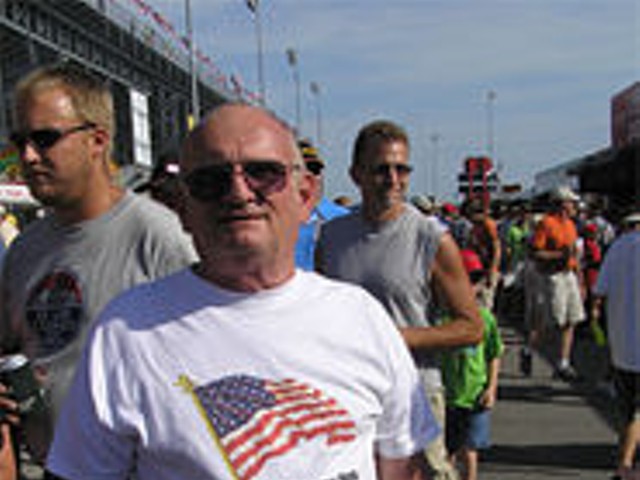Steve Carell, Los Angeles, California
I'm not a movie buff. I learned at a young age that most were only illusions. Because I've never heard the phrase "magical Negro," this question really struck my fancy. I became inquisitive about the movie, only to find that it was a comedy. Before learning that I was holding my breath, because Morgan Freeman is a favorite actor of mine. I became accustomed to blacks being portrayed as buffoons in movies when I was growing up, which was the reason I got turned off. Freeman and numerous other black actors and actresses refuse to buy that yesteryear jazz. They immediately distinguished dignity from humiliation.
Black actors and actresses of yesterday had no choice, and it isn't too much better today. Those like Eddie "Rochester" Anderson, Mantan Moreland and Stepin Fetchit only took roles that were thrown at them. I recall one movie scene in which a black dude outran a car driven by a white man. Once the car pulled even with him, the white man remarked, "I must be stopping." The black dude exclaimed, "Naw, suh...I'se jest slown down to catch my wind." Hattie McDaniel was another prime example in the role she played in Gone With the Wind, and when Jackie Robinson joined the Dodgers in 1947 and stole second base, it caused an elderly white woman to scream, "I told you so, I told you so — no sooner than Nigras are allowed to play, they're gonna start stealing!"
However, those aforementioned blacks were heroes to the black masses. Their gifted antics relieved stress in time of need. They taught blacks how to laugh at themselves while under duress, as well as joke about how they were treated. At times laughable quips served better than medicine. This is why the basketball wizardry of Reece "Goose" Tatum of Harlem Globetrotters fame made him so fabulous. Goose was my idol. In baseball it led me to become known as Clown Prince Joe Henry.
The description of the "magical Negro" in Wikipedia reads like a work of fantasy: "The magical negro is typically 'in some way outwardly or inwardly disabled, either by discrimination, disability or social constraint,' often a janitor or prisoner. He has no past; he simply appears one day to help the white protagonist. He is the black stereotype, 'prone to criminality and laziness.' To counterbalance this, he has some sort of magical power, 'rather vaguely defined but not the sort of thing one typically encounters.' He is patient and wise, often dispensing various words of wisdom...."
In Evan Almighty, Freeman only played the role of God. The white protagonist made himself God and, through conversion, created slaves out of human beings. The raw reality about this is: Wherever there are slaves, there are slave masters, who — in order to pacify their conscience — have to resort to negative propaganda to dehumanize so-called slaves. Numerous studies have been conducted on blacks to learn their physical and mental cultural status. The magic of this is how blacks used psychology, philosophy, sociology and economics to overcome their dilemma.
Prince Joe Henry, one of professional baseball's original "clowns," was
an all-star infielder for Negro League baseball teams in Memphis,
Indianapolis and Detroit throughout the 1950s. But up until the late 1940s,
Prince Joe didn't know anything about the Negro Leagues. His knowledge of
organized baseball was limited to the Cardinals and Browns games he attended
during his preteen years at Sportsman's Park, accompanied by lifelong buddy
Eugene "Gene" Crittendon, who could pass for white.
Perhaps Henry's most vivid memory of those games: Upon entry, white ushers would politely escort the boys to a small section of the left-field stands reserved for "Colored." After climbing past several tiers of bleachers, they'd arrive at their stop, rows and rows behind their white counterparts.
Even at a young age, the boys were conscious of the double standard -- and determined to vent their disdain. The opportunity would arise with the urge to urinate. Rather than head for the latrine, the boys would edge their way to the front of the section and let fly. As the liquid foamed its way down the concrete steps toward the white kids, Henry and his pal would ease back and relax, politely rooting for the visiting team to beat the hell out of the Browns or the Cards.
After all, Henry and Crittendon hailed from Brooklyn, Illinois, a small, predominantly black township just east of the Mississippi River. So hospitable were the residents of Brooklyn that they were known to take in a rank stranger, treat him to breakfast, lunch, supper and a night out on the town -- and afterward, if he messed up, treat him to a good ass-whippin'.
Direct questions on any and all topics to [email protected]. If we don't like yours, we'll hit Joe with our own.





